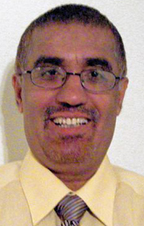By Mohammed Khaku
Historians have studied great personalities such as Moses, Jesus Christ, Buddha, Gandhi, Mother Teresa, Dr. Martin Luther King Jr., and many more, but there is one leader still largely unknown to the West who literally changed the course of history: The Prophet Muhammad, a role model and most remarkable man.
Starting Monday, Muslims all around the world began celebrating his birthday for one week. The celebration is known as Milad-un-Nabi in Arabic.
Muslims invite readers to explore the life of a personality who is loved by 2.5 billion people. Muhammad’s remarkable life has been carefully preserved and has been subjected to the scrutiny by many historians.
But why does the average American know so little about a man who was so influential and successful? The reasons are prejudice and irrational fears — dating back to the Crusades — plus Islam phobia and propaganda, which has created a mental block against Islam.
Prophet Muhammad is regarded as a great and noble man, a successor to Adam, Abraham, Moses, Noah and Christ. He was the last of the prophets. If one wants to know how Muslims see him, one ought to take a good look at his life and teachings. It would be as wrong to judge him by the doings of al Qaida, Taliban or the rulers of the Arab Nations.
Who was Muhammad?
Born in Mecca in the year 570, he was a descendant of Abraham. Orphaned at 6, he was brought up by his grandfather and uncle. He received his first revelation at 40 through the angel Gabriel and continued to receive revelations for 23 years on topics ranging from the oneness of God, life after death, stories of earlier prophets, morality and social justice. All these revelations became collectively known as the Quran.
Prophet Muhammad created a model government based on justice and human rights. He devised a constitution in which the rights of religious minorities and the rights of women were protected. He established laws protecting trees, animals and the environment. He encouraged free trade but protected the rights of individuals to forbid usury.
He condemned racism, saying “there is no superiority of an Arab over non-Arab, or a white man over a Black man, except in righteousness.” He condemned domestic violence and granted women many rights not dreamed of in Europe until centuries later, including the right to an education, to own property, to reject arranged marriages and to seek divorce.
In the short time of less than one generation, the Prophet Muhammad successfully transformed the vast majority of people from idolatry to strict monotheism, from tribalism to brotherhood, from drunkenness to soberness, from wickedness to piety, from lawlessness to discipline.
Human history has never seen such a transformation of the faith and the cultural of the people of Arabia. And within 100 years and with no high-tech communication technology, Prophet Muhammad had touched the hearts and minds of millions in Africa, Asia and parts of Europe all the way to Russia.
Prophet Muhammad was a religious teacher, a moral guide, a social reformer, a loving father and a devoted husband.
Nineteenth century British historian Thomas Carlyle wrote, “How one man single-handedly could weld tribes and wandering Bedouins into a most powerful and civilized nation in less than two decades.” And Michael Hart wrote in his 1978 book, “The 100: A Ranking of the Most Influential Persons in History” —
“My choice of Muhammad to lead the list of the world’s most influential persons may surprise so many readers and be questioned by others, but he was the only man in history who was supremely successful on both the religious and secular levels.”
On this auspicious occasion of the birthday of the Prophet Muhammad, one should read the biography of a remarkable person who has influenced the life of billions of people over the last 1,400 years.


